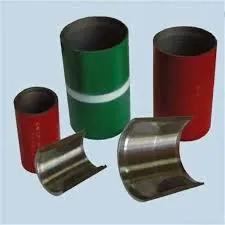- Afrikaans
- Albanian
- Amharic
- Arabic
- Armenian
- Azerbaijani
- Basque
- Belarusian
- Bengali
- Bosnian
- Bulgarian
- Catalan
- Cebuano
- Corsican
- Croatian
- Czech
- Danish
- Dutch
- English
- Esperanto
- Estonian
- Finnish
- French
- Frisian
- Galician
- Georgian
- German
- Greek
- Gujarati
- Haitian Creole
- hausa
- hawaiian
- Hebrew
- Hindi
- Miao
- Hungarian
- Icelandic
- igbo
- Indonesian
- irish
- Italian
- Japanese
- Javanese
- Kannada
- kazakh
- Khmer
- Rwandese
- Korean
- Kurdish
- Kyrgyz
- Lao
- Latin
- Latvian
- Lithuanian
- Luxembourgish
- Macedonian
- Malgashi
- Malay
- Malayalam
- Maltese
- Maori
- Marathi
- Mongolian
- Myanmar
- Nepali
- Norwegian
- Norwegian
- Occitan
- Pashto
- Persian
- Polish
- Portuguese
- Punjabi
- Romanian
- Russian
- Samoan
- Scottish Gaelic
- Serbian
- Sesotho
- Shona
- Sindhi
- Sinhala
- Slovak
- Slovenian
- Somali
- Spanish
- Sundanese
- Swahili
- Swedish
- Tagalog
- Tajik
- Tamil
- Tatar
- Telugu
- Thai
- Turkish
- Turkmen
- Ukrainian
- Urdu
- Uighur
- Uzbek
- Vietnamese
- Welsh
- Bantu
- Yiddish
- Yoruba
- Zulu
threaded bull plug
Understanding the Threaded Bull Plug A Comprehensive Guide
In various fields such as plumbing, construction, and automotive industries, the threaded bull plug is an essential component that ensures the secure sealing of pipes and chambers. Its unique design and features make it an invaluable tool for professionals and DIY enthusiasts alike. This article delves into the details of threaded bull plugs, exploring their construction, applications, and benefits.
What is a Threaded Bull Plug?
A threaded bull plug is a type of pipe plug designed to seal the end of a pipe. It is characterized by its cylindrical shape and external threads that enable it to be screwed into corresponding female threads of a pipe or fitting. The term “bull” refers to the bulkiness of the plug, which is usually designed to accommodate higher pressure and provide a robust seal.
Construction and Materials
Threaded bull plugs are typically made from various materials, including brass, stainless steel, and plastic. Each material offers unique advantages depending on the application
1. Brass Known for its corrosion resistance and durability, brass is a popular choice for plumbing applications. It withstands high temperatures and pressures, making it ideal for water and gas fittings.
2. Stainless Steel This material is favored in corrosive environments, such as chemical plants or marine applications, due to its ability to resist rust and chemical damage.
3. Plastic Lightweight and resistant to chemical reactions, plastic threaded bull plugs are often used in agricultural and irrigation systems. They are cost-effective and easy to install.
Applications
Threaded bull plugs are widely used in various industries
threaded bull plug

2. Automotive In vehicles, threaded bull plugs are often employed to seal fuel lines and transmission systems. They ensure that no fluid leaks occur, which is crucial for maintaining optimal performance and safety.
3. Manufacturing In industrial settings, threaded bull plugs are used to seal machinery, preventing the entry of contaminants while maintaining pressure in pneumatic and hydraulic systems.
4. Irrigation In agriculture, these plugs are used in irrigation systems to effectively control water flow and prevent backflow in pipes.
Benefits
The advantages of using threaded bull plugs are numerous
1. Sealing Capability The threaded design creates a tight seal, preventing leaks and maintaining the integrity of the system.
2. Ease of Installation Threaded bull plugs can be easily installed and removed, making them convenient for temporary or permanent applications.
3. Versatility Available in various sizes and materials, these plugs can be used in diverse applications across different industries.
4. Durability Made from robust materials, threaded bull plugs can withstand high pressures and harsh environmental conditions, ensuring long-term reliability.
Conclusion
In summary, the threaded bull plug is a crucial component in a wide range of applications, from plumbing to automotive and industrial sectors. Its robust construction, versatility, and effective sealing capabilities make it an indispensable tool for maintaining system integrity and preventing leaks. For anyone working in related fields, understanding the various types of threaded bull plugs and their applications can lead to more efficient and reliable operations. Whether you are sealing off a pipe in your home or working in a complex industrial setting, having the right threaded bull plug is essential to get the job done effectively.
-
Tubing Pup Joints: Essential Components for Oil and Gas OperationsNewsJul.10,2025
-
Pup Joints: Essential Components for Reliable Drilling OperationsNewsJul.10,2025
-
Pipe Couplings: Connecting Your World EfficientlyNewsJul.10,2025
-
Mastering Oilfield Operations with Quality Tubing and CasingNewsJul.10,2025
-
High-Quality Casing Couplings for Every NeedNewsJul.10,2025
-
Boost Your Drilling Efficiency with Premium Crossover Tools & Seating NipplesNewsJul.10,2025







